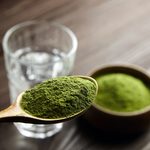Foods to Defeat ADHD
Dietary habits, like whether or not your kid eats a wholesome breakfast, can play a huge part in the ADHD equation. To help elminate ADHD symptoms try feeding your child these foods.

Protein and Complex Carbohydrates
This is perhaps the most important change you can make to your child’s diet. Shifting it away from foods rich in refined sugar and flours and instead filling Junior’s plate with more protein and high-fiber complex carbohydrates may eliminate some ADHD symptoms simply by stabilizing blood sugar levels. While the brain relies on blood sugar as its main energy source, too much can actually disrupt proper brain function.
Here’s what happens. Sugar and other refined carbohydrates (“white foods” like rice and potatoes as well as soft drinks and juices that readily break down into sugars) are digested very quickly. That sends blood sugar levels soaring. The body overcompensates by releasing large amounts of insulin to move the sugar out of the bloodstream, making blood sugar levels plummet. The brain really rebels when blood sugar levels get too low, and that’s when we start to feel tired, irritable, unfocused, and unable to concentrate. Sounds a bit like ADHD, doesn’t it? Eating meals high in fiber and protein, on the other hand, slows digestion and helps level out those wild blood sugar spikes and plunges. Our brains, sated with a more continuous source of energy, function better-and it’s quite possible that that can lead to better behavior.
It may be especially important to start your child’s day with a good breakfast. A Tufts University study found that kids who ate oatmeal-rich in complex carbohydrates that supply sustained energy as well as being a source of protein-for breakfast performed better an hour later on memory tests than kids who ate sugary cereal or no breakfast at all.
Aim for: Fill half your child’s plate with brightly colored vegetables, a quarter with lean protein such as chicken, and a quarter with whole grains, such as barley or brown or wild rice. (Oatmeal and whole-wheat bread count as a whole grains, too.)
Lean Beef, Beans, and Lentils
Iron is important for regulating dopamine, and low levels are associated with decreased attention, ability to focus, and mental activity. When French researchers looked at children with and without ADHD, they found that iron levels were markedly lower among those with ADHD. But even though a few very small studies suggest that supplements may help to reduce hyperactivity and improve behavior and scores on cognition tests, most health experts recommend getting iron from food, not supplements. Some iron supplements may be constipating, which can throw off digestion and absorption of other critical nutrients, and too much iron is dangerous.
Aim for: About 10 milligrams of iron daily.
Salmon and Flaxseed
Studies indicate that some people with ADHD have significantly lower blood levels of key essential fatty acids; other studies show that children with low blood levels of omega-3s have more learning and behavior problems than kids with higher levels.
If you can get your child to eat fish, terrific, but don’t overdo it, because fish can contain mercury and other toxins. While most experts agree that any dangers of eating fish are outweighed by the benefits, children and pregnant women should take extra care by choosing canned light tuna rather than canned white albacore or tuna steaks, for instance.
More kid-friendly omega-3 sources are sunflower seeds, pumpkin seeds, and flaxseed as well as raw refrigerated nut butters, such as those made from Brazil nuts, cashews, and sunflower seeds, and tahini, made from sesame seeds. The body can convert the fats in these foods to the same kinds found in fish, but unfortunately, it doesn’t do it very efficiently, so fish is still a preferred source.
Aim for: Two 90-gram servings of fatty fish a week.



